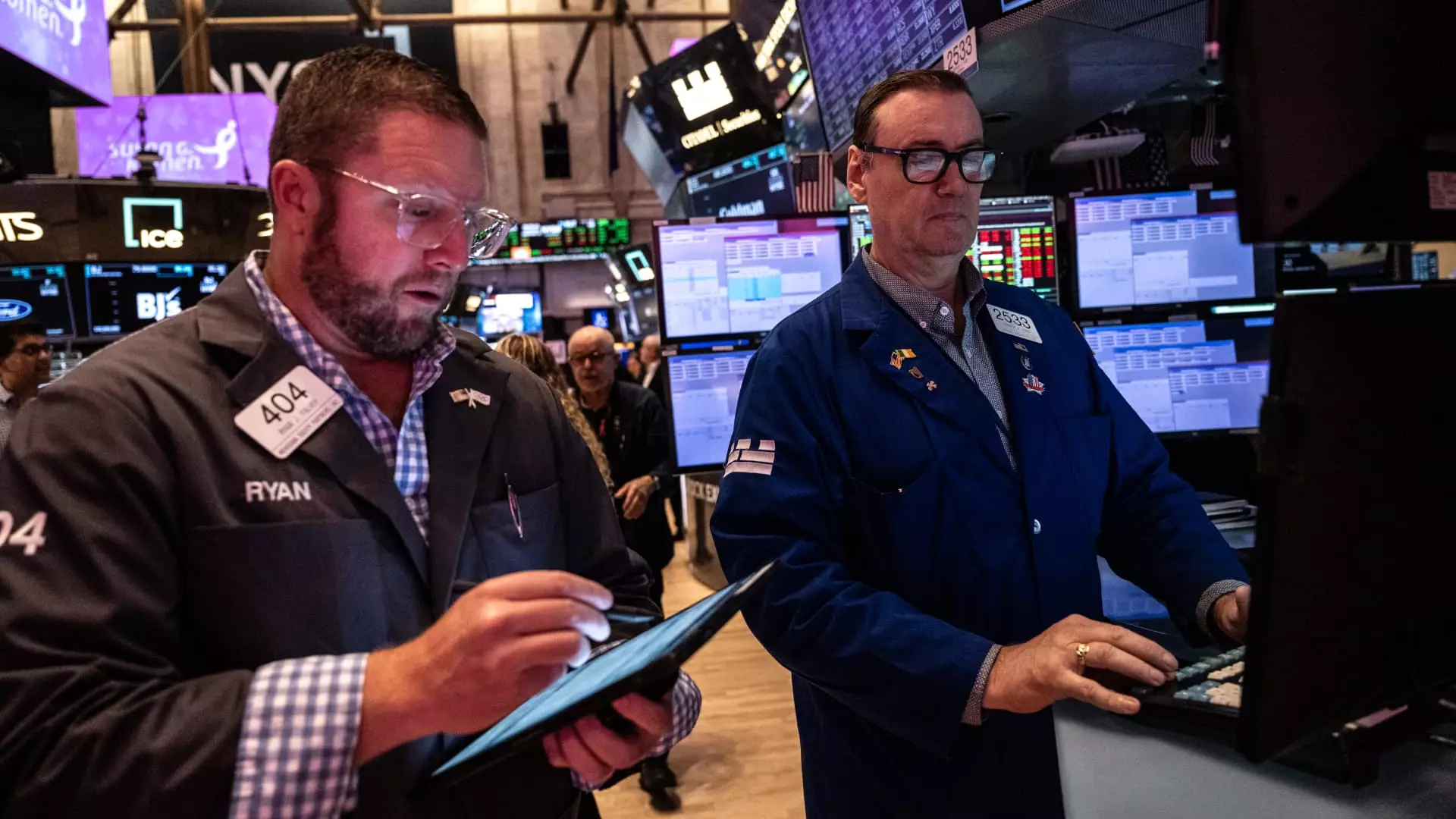The stock market operates in a complex ecosystem influenced by various factors including interest rates, economic indicators, and corporate performance. In recent developments, market fluctuations reflect deep connections to Federal Reserve policies and upcoming earnings reports, demonstrating an intricate relationship between these elements that investors must navigate carefully.
The Federal Reserve’s decision to reduce interest rates by half a point has reverberated throughout financial markets, significantly shaping investor sentiment. Such reductions are often designed to stimulate economic activity by making borrowing cheaper for consumers and businesses alike. But the immediate aftermath saw stock market volatility and fluctuations in various sectors, compelling investors to re-evaluate their strategies.
Contrary to a cautious approach, stocks in the homebuilder sector, as evidenced by the SPDR S&P Homebuilders ETF (XHB), saw robust performances, hitting record highs before exhibiting some retracement. Within this sector, notable companies like Beazer Homes, D.R. Horton, and Lennar enjoyed outstanding monthly increases, showcasing a potential revival in the housing market as demand appears to be gaining traction amidst favorable financing conditions.
Earnings reports from major corporations such as Cracker Barrel and Darden Restaurants are also looming on the horizon, promising to bring further insights into the economic psyche of consumers. Despite experiencing slight declines in stock prices over the last few months, both companies appear to exhibit marked resistance, with Darden’s diverse portfolio showing some resilience in challenging times. Investors will closely monitor these reports to assess their implications for broader market trends.
However, while some stocks show promise, particularly in the restaurant industry, others demonstrate signs of struggle. Cracker Barrel, while gaining week-to-date, indicates a bearish longer-term trend, currently down substantially from its peak prices late last year. A thorough scrutiny of these earnings reports might reveal whether consumers are opening their wallets or tightening their belts, a critical indicator for broader economic health.
The banking sector also finds itself in a turbulent phase, with all major banks reporting losses through September. Institutions like JPMorgan and Goldman Sachs have faced notable declines, which serves as a cautionary tale against an era of rising yields on Treasury securities. While a fluctuating bond market can affect banks’ profit margins, higher yields on longer-term Treasury notes may offer insights into increasing market expectations for economic growth or inflation, making this situation particularly intriguing.
Yields on various Treasury instruments have been volatile as the Fed’s interest rate cut interacts with market dynamics, drawing varied reactions from investors. The fluctuation of yields often reflects the market’s overarching sentiment and its outlook, making them a crucial lens for gauging potential shifts.
In the midst of these fluctuations, commodities such as gold are seeing renewed interest as a safe haven for wary investors. Notably, after the Fed’s announcement, gold prices reached high points, with experts like Jeffrey Gundlach attributing this to a market motivated by accumulation—a reflection of uncertainty in political and economic landscapes. With growing concerns over geopolitical and domestic issues, investments in gold and related ETFs, such as the VanEck Gold Miners ETF, depict how investors may pivot strategically to hedge against potential market downturns.
As the landscape evolves, investors need to remain vigilant and adaptive. With the Federal Reserve’s decisive actions stirring the markets, the scheduled earnings reports will be pivotal in determining the next moves of both sectors and individual companies. By keeping an eye on interest rates, economic indicators, and consumer behavior, investors can make informed decisions to navigate these transformative times in the stock market effectively. The dynamics at play suggest a waiting game for what lies ahead, posing challenges as well as opportunities for adept investors.

